MALAY MUSLIM PERSPECTIVES ON HUMAN GENE EDITING: A FIQH AND ETHICAL ANALYSIS
One of the most important advancements in contemporary biomedical science is human gene editing. Although it presents difficult ethical issues, it has enormous promises to cure genetic illnesses and enhance human health. This synopsis examines how Malay Muslims interpret human gene editing considering Islamic ethics, law, and cultural norms. It starts with a worldwide and scientific perspective, then moves on to important Islamic bioethical concepts, looks at the function of religious institutions, and concludes by examining how science and faith might cooperate to promote responsible use of this technology.
UNDERSTANDING HUMAN GENE EDITING
The method of changing a person's cells' DNA is known as human gene editing. CRISPR-Cas9 is one of the most popular methods for this, as it functions similarly to precision scissors and can cut and replace specific genetic code segments. Many people commend this approach for being precise, economical, and comparatively simple to apply.
Somatic and germline gene editing are the two primary varieties. Somatic gene editing addresses the body's non-reproductive cells. Only the person receiving treatment is impacted by changes made using this approach; they are not inherited by subsequent generations. Typically, it is employed for medicinal objectives like curing hereditary illnesses or focusing on cancerous cells. In contrast, reproductive cells such as sperm, eggs, or embryos are used in germline editing. Future generations may inherit any alterations made to these cells. Germline editing is seen more cautiously and entails higher ethical risks because of its long-term effects.
GLOBAL ETHICAL CONVERSATIONS
The ethics of gene editing are hotly debated topics all over the world. Most people believe that gene editing can be both advantageous and morally acceptable when used to address severe medical diseases. The application of gene editing for enhancement, such as enhancing athletic prowess, IQ, or attractiveness, raises questions, though. Concerns regarding discrimination, inequality, and the potential for a social split between those who can purchase genetic alterations and those who cannot are raised by this type of application.
Countries tackle regulations in different ways. For example, under close supervision, the UK permits a small amount of germline editing research. France and Germany have stricter laws, frequently based on eugenics concerns from the past. The World Health Organization and other international organizations emphasize the necessity of a worldwide framework to regulate moral application and stop misuse of gene editing technologies.
The primary issue that many nations share is that, despite the tremendous advancements in technology, ethical debates and legal frameworks are finding it difficult to keep up. This is where cultural customs and religion may be quite important, particularly in places like Southeast Asia where religion has a big impact on daily life.
ISLAMIC BIOETHICAL FOUNDATIONS
A comprehensive framework for assessing modern medical technologies, like gene editing, is offered by Islamic bioethics. It is based on several fundamental ideas, including Qawaid Fiqhiyyah (legal maxims drawn from Islamic jurisprudence), Mafsadah (the prevention of harm), and Maslahah (the promotion of public welfare). These ideas and academics in assessing whether a medical procedure is consistent with Islamic principles.
Maslahah is about reducing harm and fostering well-being. Gene editing might be viewed as a good thing if it can alleviate suffering and treat diseases. However, the action will violate the Mafsadah principle if it results in harm or poses significant risks. The total balance of short and long-term benefits and harm must also be considered in the decision.
Islamic legal precepts that allow for flexibility include "harm must be removed" and "necessity permits the prohibited". These guidelines enable academics to take into account the purpose and background of medical interventions. For instance, although gene editing is typically regarded as illegal, it might be permitted if it is the only way to save a person's life.
Permissibility is also contingent on factors such as necessity, safety, and whether the procedure has received fatwas from authorized experts. These requirements guarantee that judgements are made with both medical and ethical knowledge, and that technology is not abused.
MALAY MUSLIMS’ CONTEXT AND RELIGIOUS LEADERSHIP
Malay Muslims make up an important portion of the populace in Southeast Asia, particularly in Malaysia, Singapore, and Brunei. Their opinions on gene editing are influenced by cultural norms, education, and faith in religious leaders in addition to Islamic teachings. Any new technology must be viewed as respectful of the core Malay Muslim values of family, societal peace, and religious observance.
The public's perception of bioethics is greatly influenced by religious organizations like JAKIM in Malaysia and MUIS in Singapore. These organizations do more than just render decisions. To make sure that Islamic reactions to emerging technology are based on the most recent scientific findings, they work in conjunction with scientists, physicians, and academics. Numerous bioethical concerns, including organ donation, fertility treatments, and end-of-life care, have previously been addressed by MUIS and JAKIM. Their active participation demonstrates how Islamic principles may change and thoughtfully address contemporary issues. To assist Malay Muslims in navigating the difficult moral terrain that lies ahead, their participation in gene editing talks will be equally crucial.
ISLAMIC LEGAL PERSPECTIVE ON GENE EDITING
Islamic jurisprudence provides methods to apply known legal schools to the interpretation of novel issues. Even though gene editing was not a problem for classical jurists in their day, their approaches to legal reasoning are nonetheless applicable today. Each of the four Sunni schools Hanafi, Maliki, Shafie, and Hanbali permits the application of juristic judgement, analogy, and the public interest in deciding decisions.
Scholars generally agree that somatic gene editing can be allowed under Islamic law to treat serious ailments. This is because it is consistent with the goals of shariah, specifically the preservation of health and life. Islam promotes healing, and a method can be deemed a kind of healing if it is safe and supported by medical evidence.
But germline editing is more contentious. It can permanently change the human gene pool, and its long-term ramifications are still unknown. Many academics contend that germline editing should not be permitted unless there is an immediate and established medical necessity. It could be detrimental to society and go against the idea of maintaining ancestry.
The distinction between augmentation and therapy is a significant issue. Restoring normal function and treating illness are the goals of therapy, which is seen as acceptable. Contrarily, enhancement seeks to improve nature, frequently for aesthetic or functional purposes. From an Islamic ethical standpoint, this type of editing is harmful since it can convey discontent with Allah's creation and encourage conceit and inequality.
HARMONIZING FAITH AND SCIENTIFIC PROGRESS
How to strike a balance between the advantages of technological advancement and the principle of their religion is the main concern for Malay Muslims. Science is not opposed by Islam. If it advances mankind and upholds moral principles, it promotes learning and exploration. Gene editing must therefore be handled carefully and is not always rejected.
Religion provides direction and purpose, whereas science provides tools. Communities can guarantee the responsible use of gene editing by applying Islamic ethical norms. To comprehend and direct these potent technologies, not only academics and scientists but also regular people, families, and institutions must collaborate.
Somatic gene editing has potential and could be accepted in an Islamic context, particularly when applied to treat disease. Before germline editing is completely accepted, more study and discussion are required, and it should be used carefully. Religious leaders like JAKIM and MUIS should keep interacting with scientists and revising their teachings as new information becomes available.
RESEARCH FINDINGS
The study revealed that Malay Muslim respondents generally support the use of human gene editing for therapeutic purposes, especially when aimed at curing or preventing genetic diseases. These applications were seen as ethically acceptable and in line with Islamic objectives such as preserving life (hifz al-nafs) and alleviating suffering. In contrast, there was clear discomfort and disapproval regarding gene editing for enhancement purposes—such as improving intelligence, beauty, or physical strength—which were viewed as violating the natural disposition (fitrah) and potentially leading to social inequality or misuse. This distinction between therapy and enhancement was central to the moral reasoning of the respondents.
Participants consistently grounded their ethical evaluations in foundational Islamic principles. Core legal maxims such as maslahah (public benefit), darurah (necessity), mafsadah (harm), and la darar wa la dirar (no harm shall be inflicted or reciprocated) were commonly referenced. The respondents emphasized that gene editing decisions should be based on these principles, and judged case by case. Additionally, the majority expressed the need for fatwas and formal guidance from religious institutions. Established bodies like the Islamic Religious Council of Singapore (MUIS) and the Department of Islamic Development Malaysia (JAKIM) were highly trusted to provide ethical rulings and play a leading role in educating the public about bioethical issues in Islam.
The research also highlighted a significant gap in public understanding of gene editing technologies, including CRISPR-Cas9. Although most participants had heard of gene editing, few demonstrated detailed knowledge of its mechanisms, risks, or long-term implications. This points to a need for more effective educational outreach that connects scientific developments with Islamic ethical discourse. Despite these limitations, respondents showed cautious optimism and a willingness to embrace scientific innovation, as long as it aligns with Islamic values. Many called for closer collaboration between scientists, religious scholars, and policymakers to develop ethical frameworks that protect both human dignity and religious integrity in the age of genetic technologies.
CONCLUSION
To sum up, human gene editing is a revolutionary development that presents both opportunities and difficulties. For Malay Muslims, the discussion encompasses not just science but also morality, ethics, and religion. Islamic bioethics emphasizes caution and compassion, offering a solid framework for decision-making. To make sure that any application of gene editing is in line with Islamic principles and advances the general welfare, religious organizations must play a significant role.
Malay Muslims can successfully navigate this new frontier with confidence and integrity if they maintain their spiritual and intellectual roots and encourage polite communication between scientists and scholars. All conversations regarding the future of gene editing must continue to center on human dignity, health, and justice.
AUTHORS:
- Muhammad Abdur Rasyid Bin Wahab,
- Azfar Hadif Bin Abdul Halim,
- Muhammad ‘Abdul Razin Bin Abd Samad,
- Muhammad Asadullah Bin Zulkiflee,
- Muhammad Haikal Bin Suhaimi
About the authors:
Muhammad Abdur Rasyid Bin Wahab, Azfar Hadif Bin Abdul Halim, Muhammad ‘Abdul Razin Bin Abd Samad, Muhammad Asadullah Bin Zulkiflee and Muhammad Haikal Bin Suhaimi are pursuing their bachelor’s degree in Islamic Revealed Knowledge and Heritage (Fiqh and Usul al-Fiqh) at AHAS KIRKHS, in the International Islamic University Malaysia.
[As part of Synergised Academic and Student Activities, this article was prepared for the course RKFQ 4315, Qadaya Fiqhiyyah Mu’asirah: Contemporary Juristic Issues at AHAS KIRKHS, IIUM (Sem 2, 2024-2025)]
REFERENCES
A. McGee. "Using the Therapy and Enhancement Distinction in Law and Policy." Medical Legal Studies eJournal (2020). https://doi.org/10.1111/bioe.12662.
B. Cwik. "Moving Beyond ‘Therapy’ and ‘Enhancement’ in the Ethics of Gene Editing." Cambridge Quarterly of Healthcare Ethics, 28 (2019): 695–707. https://doi.org/10.1017/S0963180119000641.
Doudna, J. A., & Charpentier, E. (2014). The new frontier of genome engineering with CRISPR-Cas9. Science, 346(6213), 1258096. https://doi.org/10.1126/science.1258096
Jabatan Kemajuan Islam Malaysia (JAKIM). “Penggunaan Vaksin Menantara.” eFatwa. Accessed May 18, 2025. http://e-smaf.islam.gov.my/e-smaf/fatwa/fatwa/find/pr/12494
Majlis Ugama Islam Singapura (MUIS). “Fatwa.” Accessed May 18, 2025. https://www.muis.gov.sg/resources/khutbah-and-religious-advice/fatwa
Nasir, Naziruddin Mohd, ed. Fatwas of Singapore: Science, Medicine and Health. Singapore: Majlis Ugama Islam Singapura, n.d. https://isomerusercontent.by.gov.sg/FatwasofSingapore.pdf
National Academies of Sciences, Engineering, and Medicine. (2017). Human Genome Editing: Science, Ethics, and Governance. https://doi.org/10.17226/24623
Nimah Alsomali and Ghaiath Hussein. "CRISPR-Cas9 and He Jiankui's Case: an Islamic Bioethics Review using Maqasid al-Shari'a and Qawaid Fighiyyah." Asian Bioethics Review, 13 (2021): 149–165. https://doi.org/10.1007/s41649-021-00167-1.
Office of the Mufti. Fatwa on Milk Bank: Benefit of Human Milk for Premature Babies and the Preservation of Human Life in Islam. Singapore: Majlis Ugama Islam Singapura, n.d. https://isomer-user-content.by.gov.sg/FINALMILK-BANK-Booklet.pdf
UNESCO. (2015). Report of the IBC on Updating Its Reflection on the Human Genome and Human Rights. https://unesdoc.unesco.org/ark:/48223/pf0000233258
V. Kalidasan and Kumitaa Theva Das. "Playing God? Religious Perspectives on Manipulating the Genome." Journal of Religion and Health, 61 (2022): 3192–3218. https://doi.org/10.1007/s10943-022-01497-6.
World Health Organization. (2021). Human genome editing: Recommendations. https://www.who.int/publications/i/item/9789240030381
Disclaimer
The views expressed in this article are the author’s own and do not necessarily mirror Islamonweb’s editorial stance.

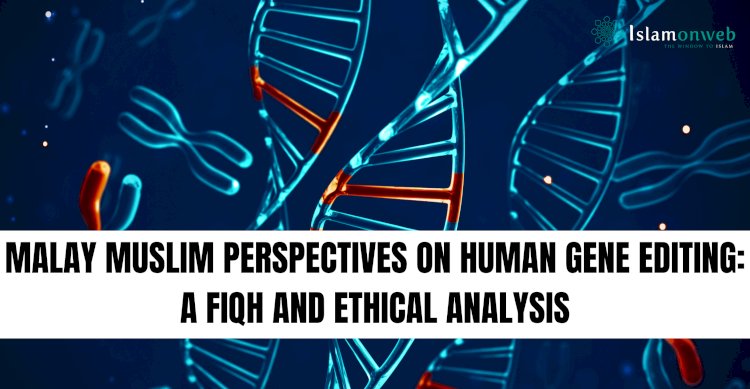


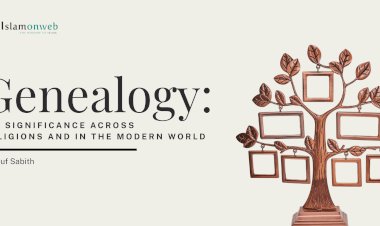
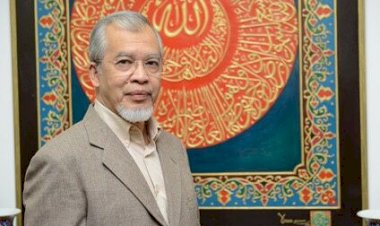
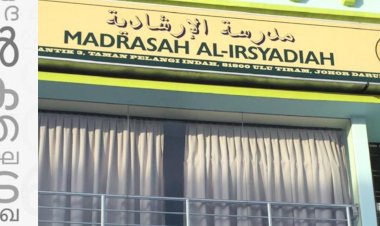
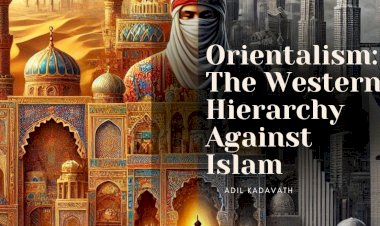
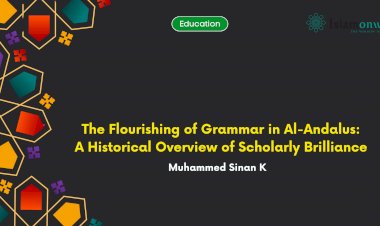
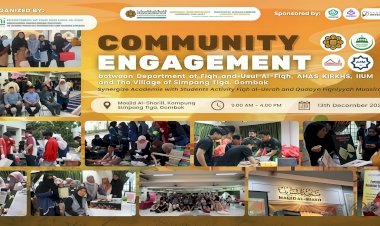














Leave A Comment